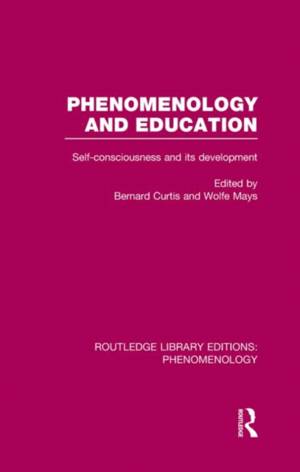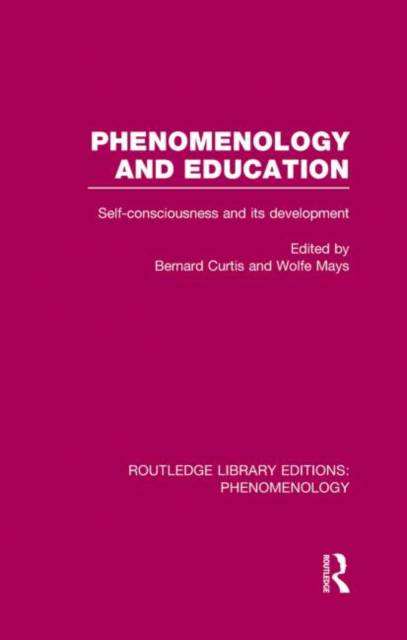
- Afhalen na 1 uur in een winkel met voorraad
- Gratis thuislevering in België
- Ruim aanbod met 7 miljoen producten
- Afhalen na 1 uur in een winkel met voorraad
- Gratis thuislevering in België
- Ruim aanbod met 7 miljoen producten
Phenomenology and Education
Self-Consciousness and Its Development
Omschrijving
This volume of essays brings a phenomenological focus to bear on the subject of education in order to provide a fruitful stimulus for educational philosophy. It is for philosophers, psychologists, sociologists and indeed anyone who seeks to understand the perennially interesting questions about the nature of self-consciousness and how our view of it might affect our thinking about education.
Originally published in 1978, the essays explore some of the main phenomenological and existentialist themes in relation to the development of consciousness. Two deal with Kierkegaard's concern for our need to know the world that is true for ourselves, and with the part that imagination plays here. There are two on the development of thinking based round Piaget's work on the child's concept of causality and an alternative view proposed by Merleau-Ponty. The role of memory in education is considered and a distinction drawn between mere memorizing and that process of remembering which enables an individual to develop his self-image. Other essays discuss some of the child's problems in establishing himself in the adult world, and explore the contact between child and teacher. The effects of bringing up a child in isolation from other children is considered with reference to Jean-Paul Sartre's account of his childhood.
Specificaties
Betrokkenen
- Uitgeverij:
Inhoud
- Aantal bladzijden:
- 178
- Taal:
- Engels
- Reeks:
Eigenschappen
- Productcode (EAN):
- 9780415859288
- Verschijningsdatum:
- 8/08/2013
- Uitvoering:
- Hardcover
- Formaat:
- Genaaid
- Afmetingen:
- 156 mm x 233 mm
- Gewicht:
- 384 g

Alleen bij Standaard Boekhandel
Beoordelingen
We publiceren alleen reviews die voldoen aan de voorwaarden voor reviews. Bekijk onze voorwaarden voor reviews.











